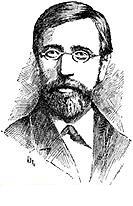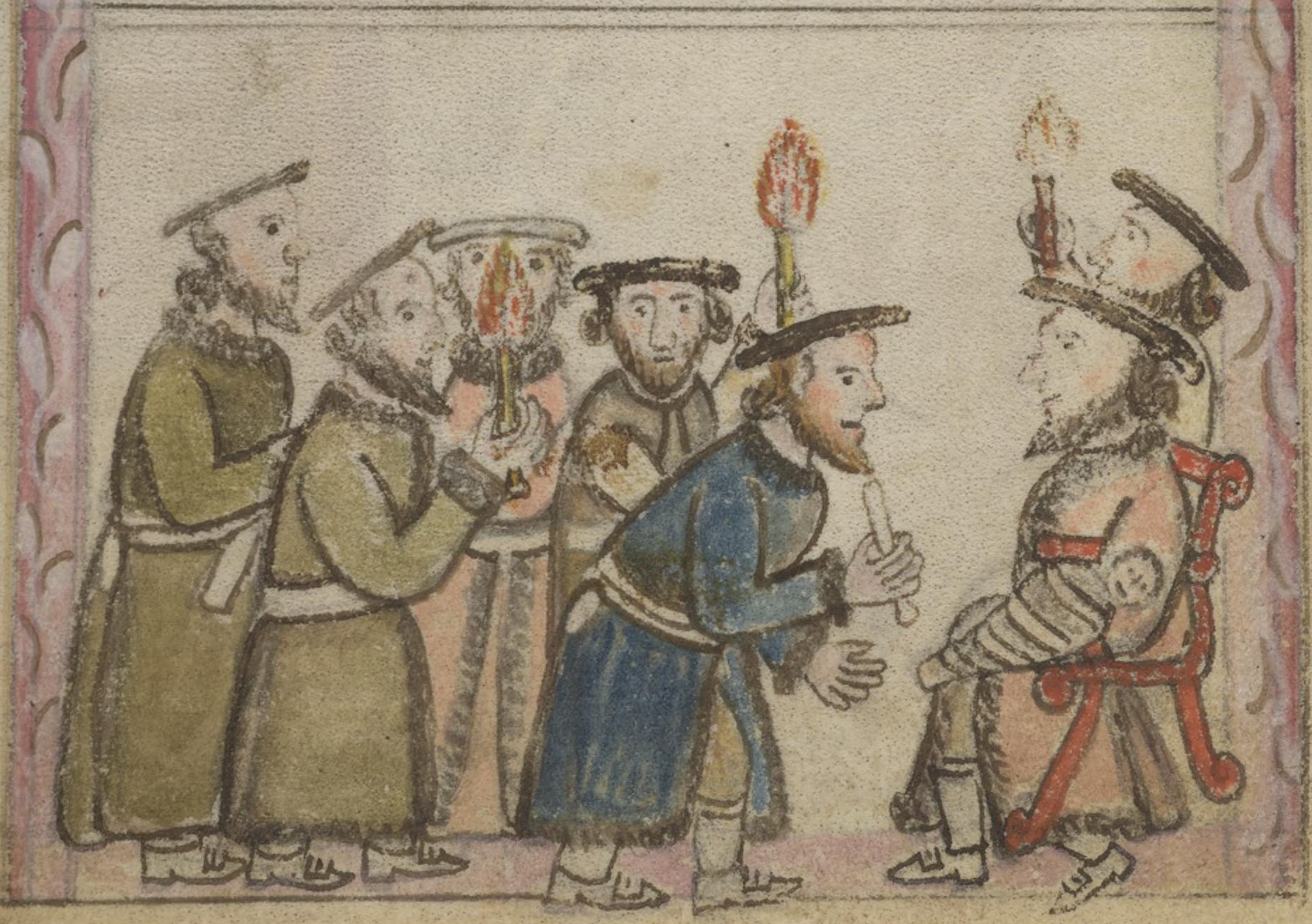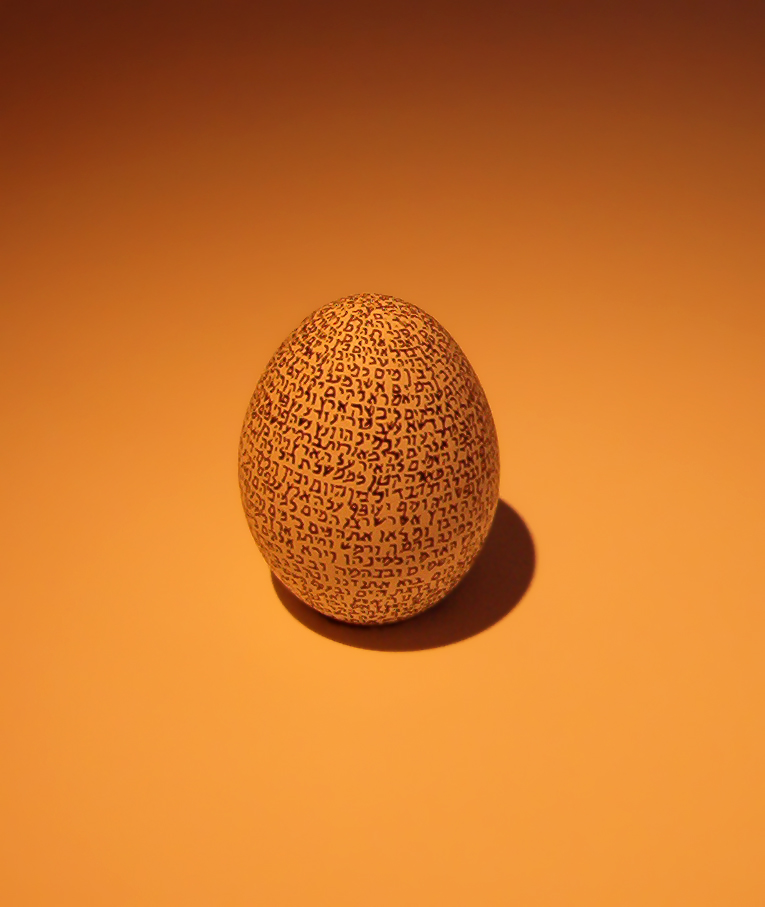|
Elohekhem (piyyut)
Elohekhem ( he, אלהיכם) is a genre of piyyut, which arose among Jews in 12th-century Germany, to be inserted in the Qedusha of the Musaf prayer. Several dozen poems of this genre were written over the course of the twelfth and thirteenth centuries. This name of this genre, meaning “your God”, comes from the closing word of Numbers 15:41: “...to be your God; I am the Lord your God.” A quote from the end of this verse appears in the Qedusha liturgy of Musaf in most Jewish prayer rites, including the Ashkenazic Rite. The poets of Medieval Western Ashkenaz composed the Elohekhem piyyutim to be inserted in the liturgy immediately after this Biblical quote. These poems all begin with the word “Elohekhem”, thus creating an anadiplosis with the last word of the Biblical quote. The Elohekhem genre is miniaturistic; the poems average a length of six to seven lines (though some are as short as four, and some as long as eighteen). Liturgical use in printed rites Of the ... [...More Info...] [...Related Items...] OR: [Wikipedia] [Google] [Baidu] |
Genres Of Piyyut
Piyyut is Jewish liturgical poetry, in Hebrew or occasionally Aramaic. Since the fifth century CE, piyyutim (the plural of "piyyut") have been written in many different genres and subgenres. Most of these are defined by the function that the given poem fulfills in the context of Jewish prayer service; but a few are defined by other criteria, such as content. Yotzer sequence—a series of poems, which adorn the blessings surrounding the morning recitation of the Shema‘. Note that the Shema‘ itself is always kept in its statutory form, and not adorned with poetry, because it is made up of passages taken straight from the Bible. :1. Guf yotzer (or just yotzer)—the first poem of the sequence, coming at the very beginning of the blessing "Yotzer Or" (on the heavenly luminaries). In a sequence written for a weekday, this is a very short poem, of one stanza, and leads straight to the conclusion of the blessing; parts 1a, 2, 3, and 4 are skipped. In a sequence written for a Sabbath or ... [...More Info...] [...Related Items...] OR: [Wikipedia] [Google] [Baidu] |
Rosh Chodesh
Rosh Chodesh or Rosh Hodesh ( he, ראש חודש; trans. ''Beginning of the Month''; lit. ''Head of the Month'') is the name for the first day of every month in the Hebrew calendar, marked by the birth of a new moon. It is considered a minor holiday, akin to the intermediate days during the Jewish holidays of Passover and Sukkot. Origin The Book of Exodus establishes the new moon of Nisan, which is the first month of Aviv, as the beginning of the Hebrew calendar: In the Book of Numbers, God speaks of the celebration of the new moon to Moses: In , both new and full moon are mentioned as a time of recognition by the Hebrews: The occurrence of Rosh Chodesh was originally confirmed on the testimony of witnesses observing the new moon. After the Sanhedrin declared Rosh Chodesh for either a full month or a defective, 29-day month, news of it would then be communicated throughout Israel and the diaspora. A custom was developed in which an additional day could be added to the m ... [...More Info...] [...Related Items...] OR: [Wikipedia] [Google] [Baidu] |
Judah Ben Samuel Of Regensburg
Judah ben Samuel of Regensburg (1150 – 22 February 1217), also called Yehuda HeHasid or 'Judah the Pious' in Hebrew, was a leader of the Chassidei Ashkenaz, a movement of Jewish mysticism in Germany considered different from the 18th-century Hasidic movement founded by the Baal Shem Tov. Judah was born in the small town of Speyer in the modern day Rhineland-Palatinate state in Germany in 1150 but later settled in Regensburg in the modern day state of Bavaria in 1195. He wrote much of ''Sefer Hasidim'' (Book of the Pious), as well as a work about Gematria and ''Sefer Hakavod'' (Book of Glory), the latter has been lost and is only known by quotations that other authors have made from it. His most prominent students were Elazar Rokeach, Isaac ben Moses of Vienna author of ''Or Zarua'' and perhaps also Moses ben Jacob of Coucy (according to the Hida). Biography Judah was descended from an old family of kabbalists from Northern Italy that had settled in Germany. His grandfather ... [...More Info...] [...Related Items...] OR: [Wikipedia] [Google] [Baidu] |
Seligman Baer
Seligman (Isaac) Baer (1825–1897) was a Masoretic scholar, and an editor of the Hebrew Bible and of the Jewish liturgy. He was born in Mosbach, the northern district of Biebrich, on 18 September 1825 and died at Biebrich-on-the-Rhine in March 1897. Baer commenced his Masoretic studies as early as 1844. He belonged to the school of Wolf Heidenheim, and had in his possession some of Heidenheim's original manuscripts and personal copies of his published works with handwritten marginal notes. Few scholars in the nineteenth century had so intimate an acquaintance with all the details of the Masorah as had Baer, and it was largely due to him that the study of this branch of Hebrew philology was brought to the notice of Biblical critics. His friendship with Franz Delitzsch, who stood sponsor for much of his work, aided him in making known to the world the results of his studies. Baer's monumental edition of the Jewish prayerbook according to the Ashkenazic rite, ''Seder Avodat Yisrae ... [...More Info...] [...Related Items...] OR: [Wikipedia] [Google] [Baidu] |
Khal Adath Jeshurun
Khal Adath Jeshurun (KAJ) is an Orthodox German Jewish Ashkenazi congregation in the Washington Heights neighborhood, in the New York City borough of Manhattan. It has an affiliated synagogue in the heavily Orthodox Jewish neighborhood of Monsey, New York. History The community is a direct continuation of the pre-Second World War Jewish community of Frankfurt am Main led by Samson Raphael Hirsch. Khal Adath Jeshurun bases its approach, and structure, on Hirsch's philosophy of ''Torah im Derech Eretz''; it was re-established according to the protocol originally drawn in 1850, to which the congregation continues to adhere. The community is colloquially called "Breuer's" after Rabbi Joseph Breuer, founder of the American incarnation and its first Rabbi. He was a grandson of Samson Raphael Hirsch. Nusach Unlike most Ashkenazic synagogues in the United States, which follow the Eastern Ashkenazic ('' Poilisher'') liturgical rite, KAJ follows the Western Ashkenazic rite, in its lit ... [...More Info...] [...Related Items...] OR: [Wikipedia] [Google] [Baidu] |
Brit Milah
The ''brit milah'' ( he, בְּרִית מִילָה ''bərīṯ mīlā'', ; Ashkenazi Hebrew, Ashkenazi pronunciation: , "Covenant (religion), covenant of circumcision"; Yiddish pronunciation: ''bris'' ) is Religion and circumcision, the ceremony of circumcision in Judaism. According to the Book of Genesis, God in Judaism, God commanded the Patriarchs (Bible), biblical patriarch Abraham to be circumcised, an act to be followed by his male descendants on the eighth day of life, symbolizing Covenant of the pieces, the covenant between God and the Jewish people. Today, it is generally performed by a mohel on the eighth day after the infant's birth and is followed by a celebratory meal known as ''seudat mitzvah''. ''Brit Milah'' is considered among the 613 commandments, most important and central commandments in Judaism, and the rite has played a central role in Jewish history, the formation and history of Jewish culture, Jewish civilization. The Talmud, when discussing the importa ... [...More Info...] [...Related Items...] OR: [Wikipedia] [Google] [Baidu] |
Shabbat Nachamu
Special Shabbatot are Jewish Shabbat days on which special events are commemorated. Variations in the liturgy and special customs differentiate them from the regular Sabbaths and each one is referred to by a special name; many communities also add piyyutim on many of these special shabbatot. Two such Sabbaths, ''Shabbat Mevarchim'', which immediately precedes a new month, and ''Shabbat Rosh Chodesh'', which coincides with the new month, can occur on several occasions throughout the year. The other special Sabbaths occur on specific sabbaths before or coinciding with certain Jewish holidays during the year, according to a fixed pattern. Shabbat Shuvah – Return ''Shabbat Shuvah'' or ''Shabbat T'shuvah'' ("Sabbath fReturn" שבת שובה or "Sabbath fRepentance" שבת תשובה) refers to the Shabbat that occurs during the Ten Days of Repentance, but is between (i.e. not including) the two consecutive Days of Rosh Hashanah, and the Day of Yom Kippur. The name Shabbat Shuvah ... [...More Info...] [...Related Items...] OR: [Wikipedia] [Google] [Baidu] |
Hanukkah
or English translation: 'Establishing' or 'Dedication' (of the Temple in Jerusalem) , nickname = , observedby = Jews , begins = 25 Kislev , ends = 2 Tevet or 3 Tevet , celebrations = Lighting candles each night. Singing special songs, such as Ma'oz Tzur. Reciting the Hallel prayer. Eating foods fried in oil, such as latkes and sufganiyot, and dairy foods. Playing the '' dreidel'' game, and giving Hanukkah ''gelt'' , type = Jewish , significance = The Maccabees successfully revolted against Antiochus IV Epiphanes. According to the Talmud, the Temple was purified and the Miracle of the cruse of oil, wicks of the menorah miraculously burned for eight days, even though there was only enough sacred oil for one day's lighting. , relatedto = Purim, as a Rabbinic Judaism, rabbinically decreed holiday. , date = , date = , date = , date = , date = Hanukkah (; ) is a Jewish holidays, Jewish festival commemorating the ... [...More Info...] [...Related Items...] OR: [Wikipedia] [Google] [Baidu] |
Bereshit (parsha)
Bereshit, Bereishit, Bereshis, Bereishis, or B'reshith (—Hebrew for "in beginning" or " in the beginning," the first word in the parashah) is the first weekly Torah portion (, ''parashah'') in the annual Jewish cycle of Torah reading. The parashah consists of . In the parashah, God creates the heavens, the world, Adam and Eve, and Sabbath. A serpent convinces Eve, who then invites Adam, to eat the fruit of tree of the knowledge of good and evil, which God had forbidden to them. God curses them and expels them from the Garden of Eden. One of their sons, Cain, becomes the first murderer, killing his brother Abel out of jealousy. Adam and Eve have other children, whose descendants populate the Earth. Each generation becomes more and more degenerate until God, decides to destroy humanity. Only one person, Noah, finds God's favor. The parashah is made up of 7,235 Hebrew letters, 1,931 Hebrew words, 146 verses, and 241 lines in a Torah Scroll (''Sefer Torah''). Jews read it on the ... [...More Info...] [...Related Items...] OR: [Wikipedia] [Google] [Baidu] |
Special Shabbat
Special Shabbatot are Jewish Shabbat days on which special events are commemorated. Variations in the liturgy and special customs differentiate them from the regular Sabbaths and each one is referred to by a special name; many communities also add piyyutim on many of these special shabbatot. Two such Sabbaths, ''Shabbat Mevarchim'', which immediately precedes a new month, and ''Shabbat Rosh Chodesh'', which coincides with the new month, can occur on several occasions throughout the year. The other special Sabbaths occur on specific sabbaths before or coinciding with certain Jewish holidays during the year, according to a fixed pattern. Shabbat Shuvah – Return ''Shabbat Shuvah'' or ''Shabbat T'shuvah'' ("Sabbath fReturn" שבת שובה or "Sabbath fRepentance" שבת תשובה) refers to the Shabbat that occurs during the Ten Days of Repentance, but is between (i.e. not including) the two consecutive Days of Rosh Hashanah, and the Day of Yom Kippur. The name Shabbat Sh ... [...More Info...] [...Related Items...] OR: [Wikipedia] [Google] [Baidu] |
Piyyut
A ''piyyut'' or ''piyut'' (plural piyyutim or piyutim, he, פִּיּוּטִים / פיוטים, פִּיּוּט / פיוט ; from Greek ποιητής ''poiētḗs'' "poet") is a Jewish liturgical poem, usually designated to be sung, chanted, or recited during Jewish services, religious services. ''Piyyutim'' have been written since Temple in Jerusalem, Temple times. Most ''piyyutim'' are in Hebrew language, Hebrew or Aramaic language, Aramaic, and most follow some poetic scheme, such as an acrostic following the order of the Hebrew alphabet or spelling out the name of the author. Many ''piyyutim'' are familiar to regular attendees of synagogue services. For example, the best-known ''piyyut'' may be ''Adon Olam'' ("Master of the World"). Its poetic form consists of a repeated rhythmic pattern of short-long-long-long (the so-called hazaj meter), and it is so beloved that it is often sung at the conclusion of many synagogue services, after the ritual nightly recitation of ... [...More Info...] [...Related Items...] OR: [Wikipedia] [Google] [Baidu] |
Shabbat Shuvah
Special Shabbatot are Jewish Shabbat days on which special events are commemorated. Variations in the liturgy and special customs differentiate them from the regular Sabbaths and each one is referred to by a special name; many communities also add piyyutim on many of these special shabbatot. Two such Sabbaths, ''Shabbat Mevarchim'', which immediately precedes a new month, and ''Shabbat Rosh Chodesh'', which coincides with the new month, can occur on several occasions throughout the year. The other special Sabbaths occur on specific sabbaths before or coinciding with certain Jewish holidays during the year, according to a fixed pattern. Shabbat Shuvah – Return ''Shabbat Shuvah'' or ''Shabbat T'shuvah'' ("Sabbath fReturn" שבת שובה or "Sabbath fRepentance" שבת תשובה) refers to the Shabbat that occurs during the Ten Days of Repentance, but is between (i.e. not including) the two consecutive Days of Rosh Hashanah, and the Day of Yom Kippur. The name Shabbat Shuva ... [...More Info...] [...Related Items...] OR: [Wikipedia] [Google] [Baidu] |



